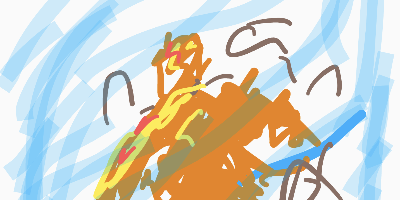Rizzardo IV da Camino (jan 1, 1274 – apr 12, 1312)
Description:
The eldest son of Gherardo III and his first wife, Ailice da Vivaro from Vicenza , he was knighted in 1295 in Rovigo by the Marquis Azzo VIII d'Este . The following month he married, at the behest of his father, Catherine of Ortenburg , a member of a powerful Carinthian family interested in trading with the Caminesi.The father, lord of Treviso since 1283 , at the end of the 13th century tries to expand the family possessions in Friuli , where he often sends his son Rizzardo to make agreements on his behalf. In 1301 he already supported his father at the helm of the city of Treviso , an activity that he carried out on his own after the latter's death in 1306 .
The following year , he was widowed and then married the young Giovanna , daughter of Nino Visconti judge of Gallura, defined by Dante as the daughter of Nin gentil .
The failure of the countryside in Friuli
Rizzardo does not possess the acumen and forethought of his father, and this will cost him very dearly. In 1309 , after having forced the Patriarch of Aquileia to flee to Venice , he posed as his protector: on 2 October with his army he escorted him to the Castle of Udine . Having entered the Friulian city by deception, Rizzardo asks to be appointed Captain General of Friuli, and the patriarch, surrounded, accepts. But the uprising of the inhabitants of the city will force him to flee.
In 1311 , as the family's policy of expansion to the east failed miserably, he signed a conspiracy together with the Ghibellines , thus obtaining the appointment of Imperial Vicar from the Emperor Henry VII . The gesture, very serious for a historically Guelph family , made him lose the esteem and trust of the Doge of Venice and the nobles of Treviso and Venice.
Historians and contemporaries agree that Rizzardo ruled Treviso worse than his father. He stole from the city coffers and interpreted and modified the city statutes exactly like his father, but unlike the latter he was not loved by his citizens, due to the increase in the tax burden and the accusations of rape and murder that were brought against him, especially in the last years of his life.
The murder
The epilogue was inevitable, and on 5 April 1312 Rizzardo, while playing chess in the loggia of his palace, was mortally wounded by a hitman, in turn immediately killed by the other nobles present, probably to eliminate the evidence. The tragic event is "prophesied", by the mouth of Cunizza da Romano , in the Divine Comedy ( Paradiso , canto IX , vv. 49-51):
"And where Sile and Cagnan go with him, such a lord rules
and goes with his head held high,
who is already making a spider for him."
( Dante Alighieri )
For Dante it is a political murder, a consequence of the new "savage century" where the Guelphs are no longer distinguished from the Ghibellines. There are numerous hypotheses about who hatched the "ragna", or the conspiracy: in fact, many, both Guelphs and Ghibellines, had an interest in eliminating him. Among the suspects are the nobles of the city (in particular the Collalto and the Azzoni , the Paduan nobles who feared for the independence of their city), the Veronese Cane della Scala , even his brother Guecellone da Camino who will be his successor for a few months before being forced to flee.
Rizzardo dies on April 12, after seven days of agony, and is buried in the family tomb in the church of San Francesco.
Added to timeline:
Date:
jan 1, 1274
apr 12, 1312
~ 38 years
